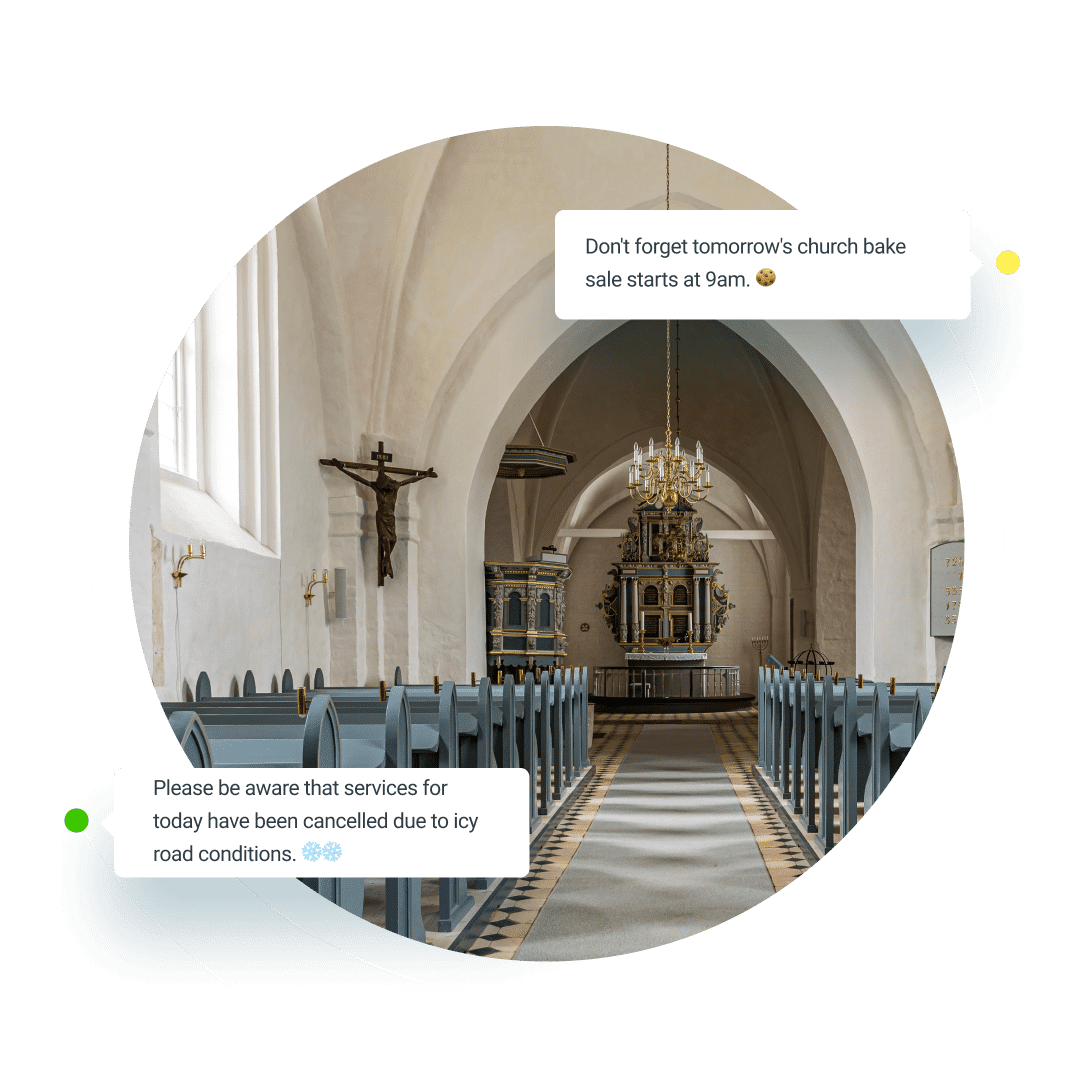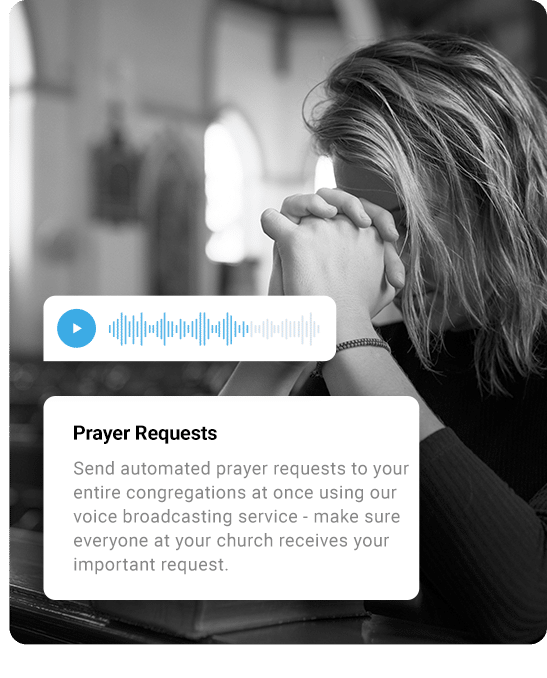Church MASS NOTIFICATION SERVICE
Mass Texting & Calling System for Churches

Below are just a few of the thousands of religious organizations that use our system.

Looking for a way to easily notify your entire congregation or organization in seconds? Using DialMyCalls you can send a phone call and/or text message to your whole organization instantly! There is no equipment or expensive hardware to buy; you can simply login to your control panel and setup & send your calls within minutes.
Used by thousands of churches and religious groups around the country, DialMyCalls is a very valuable tool for keeping everyone informed and active within your organization.
Many churches who use us keep their phone numbers broken down into groups. This way when you send your messages out you can select which group to send it to, or send it to everyone if necessary. The most popular groups are the congregation, youth group, choir and staff.
By keeping your organization informed you can increase turn-out to your mass & services. This is a great way to bring more money into the church through donations. People feel more connected to your group when they hear your message, which brings more participation and a tighter knit community.
All religious organizations receive 10% off of our call package prices. Simply call our customer support team at 1-800-928-2086 and someone can assist you in getting the discount setup on your account.
